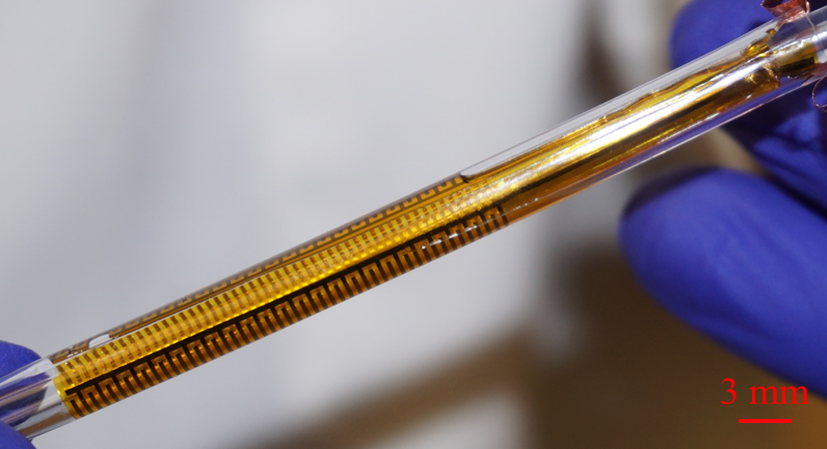NSF grant for Ghodssi, Bentley furthers research of flexible devices to combat biofilms
Professor Reza Ghodssi (ECE/ISR) is the Principal Investigator and Professor William Bentley (BIOE/IBBR) is the co-PI for a three-year, $330K grant from the National Science Foundation for “Development of Flexible Microsystems for Dynamic Bacterial Biofilm Management.” The new award will further the researchers’ development of dynamic flexible sensor microsystems for detecting, monitoring, treating and inhibiting bacterial biofilms on complex surfaces such as urinary catheters, prosthetic implants and water systems. Bacterial biofilms are a major cause of infection and environmental biofouling. They are difficult to remove and contribute to the rapid increase in antibiotic-resistant bacterial strains. They can occur in an array of inaccessible environments with complex curved geometries, such as urinary catheters, prosthetic implants, and water systems. Their presence often induces catastrophic consequences such as persistent infections, implant failure, and systemic contamination. Because effective methods for viable methods to detect, monitor, prevent, and remove biofilm do not currently exist for these kinds of environments, there is a great demand for new technologies. Systems that could successfully monitor and remove biofilm would have a dramatic impact on people’s quality of life, and have the potential to reduce the spread of antibiotic-resistant and healthcare-acquired infections. Recent advances in flexible device technology are yielding opportunities to create feedback-driven biofilm management systems that can operate in these vulnerable spaces. The team in this research is taking an interdisciplinary approach to address the challenge of preventing, identifying, and removing biofilms on a complex surface. The researchers will combine applied microbiology with engineering disciplines to explore the complex interactions between flexible sensors, bacterial biofilms, and bioelectric treatment. The grant enables Ghodssi and his team to develop a paradigm for dynamic flexible sensor microsystems that can detect, monitor and inhibit biofilms on multidimensional surfaces, in particular the cylindrical environment of a urinary catheter. This paradigm will take into account surface bacterial species, fluid conditions, and geometry. To optimize microsystems for sensing and inhibiting biofilms, the team will use thin film electrodes as simple and sensitive electrochemical impedance sensors. The electrodes will be tested both as sensors and “bioelectric effect” biofilm inhibitors in a microfluidic system. A computational model that examines changes in the sensor’s electric field for the relevant geometry will be used to optimize the device for biofilm detection. To manufacture the integrated flexible devices, the researchers will choose appropriate materials and fabrication processes for the specific geometric and environmental requirements of each application. In particular, they will explore flexible substrates, such as polyimide, with gold as an inert electrode material. These substrates will enable the device to fold and scale as needed to interface with vulnerable complex curved surfaces. An environmental model with data transmission and feedback control will be developed and used to test the devices, using a urinary catheter as a test case. The model will consider the catheter’s unique geometric, bacterial, and fluidic conditions. 3D-printed structures will precisely recreate geometry interactions with biofilm. Sensor response and bioelectric treatment will be evaluated simultaneously. The system will be able to remotely program the electrical reduction of biofilm. A wireless (Bluetooth or Wifi) controlled electronic system will be developed to operate the impedance sensor and control the electrodes’ biofilm removal. The feedback-driven biofilm control will consider threshold impedance sensing values that correspond to biofilm biomass. The system will introduce a bioelectric effect treatment based on impedance sensor data indicating the formation of a biofilm in real-time. The fundamental methodology developed here will enable further research to address biofilm monitoring and removal. This grant builds on previously demonstrated work in this area. Ghodssi, his Ph.D. student Ryan Huiszoon (Fischell Department of Bioengineering) and his post-doctoral researcher Pradeep Rajasekaran (Institute for Systems Research) won the University of Maryland’s 2018 Invention of the Year in the Life Sciences category for their “flexible urinary catheter insert to detect and prevent bacterial infections.” | Read a detailed summary of the research to this point |
Related Articles: September 7, 2018 Prev Next |


